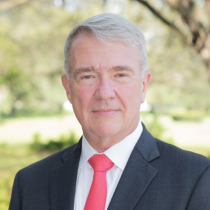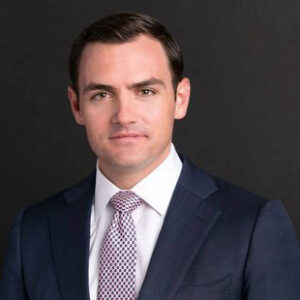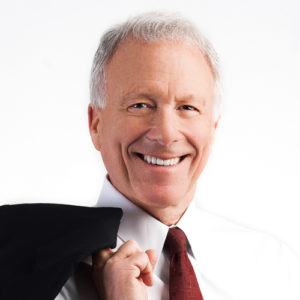Generalship: High Command in War
Examine what it means to command at the very highest levels of war with a former CENTCOM commander.
June 28–July 3, 2025
Washington, DC
It wasn’t supposed to turn out this way. Just over thirty years ago, the Cold War came to an improbably abrupt and peaceful end. After nearly half a century of multi-dimensional rivalry with the U.S., Russia appeared poised to become a free-market democracy and a strategic partner to Washington. Instead, over the coming decades, Moscow would revert to authoritarian rule and today once again menaces the West—posing one of the most consequential tests of American power and leadership in the modern world. What went wrong?
The purpose of this seminar is to study the trajectory of U.S. policy towards Russia during this consequential period—from the Soviet collapse in 1991 to the invasion of Ukraine in 2022—an arc of history that encompasses six American presidents, three Kremlin leaders, and (along the way) the social, economic, technological, and geopolitical transformation of much of the planet. Our goal will be to understand both how we got to where we are now and where we are going—and what that journey reveals about the character of two of the world’s most consequential countries, the United States and the Russian Federation.
Vance Serchuk & Gen David Petraeus on leadership
This course is part of our residential Security Studies Program. Fellows participate in morning seminars and meet national security leaders and experts over afternoon and evening sessions. Up to 16 fellows will be selected.

Vance Serchuk is Executive Director of the KKR Global Institute and an Adjunct Senior Fellow at the Center for a New American Security. Prior to joining KKR, Mr. Serchuk served for six years as the senior national security advisor to Senator Joseph Lieberman (I-Connecticut).

Vance Serchuk is Executive Director of the KKR Global Institute and an Adjunct Senior Fellow at the Center for a New American Security.
Prior to joining KKR, Mr. Serchuk served for six years as the senior national security advisor to Senator Joseph Lieberman (I-Connecticut). In this capacity, he worked on a broad range of international issues, including comprehensive sanctions legislation, the U.S. rebalance to the Asia-Pacific, and the U.S. response to the Arab Spring, traveling to over 60 countries in Asia, Latin America, Africa, and the Middle East.
From January to July 2013, he was a Council on Foreign Relations-Hitachi International Affairs Fellow, based in Japan, and a regular columnist for the Washington Post. His writings have also appeared in the New York Times, Wall Street Journal, and Los Angeles Times.
Mr. Serchuk is a summa cum laude graduate of Princeton University, holds a J.D. from Yale Law School, and was a Fulbright scholar in the Russian Federation.
Readings:
Key Questions:
Readings:
Key Questions:
Readings:
Key Questions:
Readings:
Ukraine Denuclearization
Key Questions:
Readings:
The NATO Expansion Debate
The Balkans
Key Questions:
Readings:
Key Questions:
Readings:
Key Questions:
Readings:
The Reset
Libya
Russian Internal Developments
US Human Rights Policy
Key Questions:
Readings:
Post-Reset Reflections… and What Next?
Syria and the Red Line (2013)
Ukraine Explodes (2013–16)
Syria Escalates (2014–16)
Key Questions:
Readings:
The 2016 Election
The Trump Administration
Key Questions:
Readings:
Opening Moves
The Road to War
Key Questions
Readings:
Key Questions:

Gen. Kenneth F. McKenzie Jr.
Gen. Kenneth ‘Frank’ McKenzie Jr. is the former Commander of United States Central Command. He led a distinguished 42-year military career, commanding at multiple levels within the Marine Corps and serving on the Joint Staff. His leadership roles included commanding the First Battalion, Sixth Marines, and the 22nd MEU (SOC) during combat deployments to Afghanistan and Iraq.
Mick Ryan
Mick Ryan is a retired major general in the Australian Army. He is now an adjunct fellow at the Center for Strategic and International Studies in Washington DC, and a non-resident fellow of the Lowy Institute in Sydney. In January 2023 Mick was also appointed as an Adjunct Professor at the University of Queensland in Brisbane, Australia.

Aaron MacLean
Aaron MacLean is a senior fellow at Hudson Institute and the host of the School of War podcast. Previously, he was senior foreign policy advisor and legislative director to Senator Tom Cotton of Arkansas. Aaron served on active duty as a U.S. Marine for seven years, deploying to Afghanistan as an infantry officer in 2009–2010.

Mike Gallagher
Mike Gallagher served for four terms in the U.S. House of Representatives as Wisconsin’s 8th Congressional District representative. Previously, he served seven years on active duty in the U.S. Marine Corps, including two deployments to Iraq.

Vance Serchuk
Vance Serchuk is Executive Director of the KKR Global Institute and an Adjunct Senior Fellow at the Center for a New American Security. Prior to joining KKR, Mr. Serchuk served for six years as the senior national security advisor to Senator Joseph Lieberman (I-Connecticut).

Lewis Libby
Lewis “Scooter” Libby is a distinguished fellow at the Foundation for Defense of Democracies. He has held several high level positions in the federal government related to his current work on national security and homeland security affairs. This included roughly a dozen years working in the White House, the U.S. Department of Defense, and the U.S. Department of State.
Paul Wolfowitz
Paul Wolfowitz is a scholar at the American Enterprise Institute. He spent more than three decades in public service and higher education. Most recently, he served as president of the World Bank and deputy secretary of defense.

Jacob Howland
Jacob Howland has published five books and roughly 60 scholarly articles and review essays on the thought of Plato, Aristotle, Xenophon, Kierkegaard, the Talmud, the Holocaust, ideological tyranny, and other subjects. His most recent book is Glaucon’s Fate: History, Myth, and Character in Plato’s Republic.